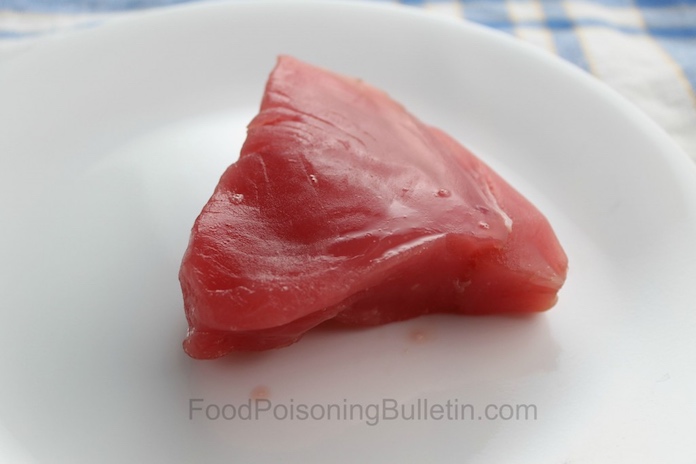An outbreak of scombroid poisoning is associated with All Water Seafood & Oyster Bar, located in the Loews Hotel 1000, at 1001 1st Avenue in Seattle, Washington. Three people are sick in this outbreak. They ate tuna at that restaurant on November 4, 2019; all patients are from one party. No one has been hospitalized.

Symptoms of this illness include nausea, diarrhea, and flushed face. Other symptoms typical of this illness include tingling or burning sensations in the mouth, facial swelling, rash, itchy skin and hives, abdominal cramps, low blood pressure, blurred vision, dizziness, and vomiting. The symptoms typically begin a few minute to a few hours after ingesting food, usually seafood, the has elevated levels of histamine. This is essentially an allergic reaction. People usually recover without serious complications.
Environmental health officials visited All Water Seafood & Oyster Bar on November 6, 2019. There were no food safety concerns noted related to preparation or refrigeration from tuna. No tuna from the batch that was served to ill persons was available at the time of the investigation. The restaurant discarded all prepared tuna voluntarily.
The outbreak was reported to the FDA to investigate the source of the tuna to make sure storage and handling of the fish is safe before more is distributed to restaurants and other establishments. Some fish, when not properly refrigerated at temperatures below 41°F can elevate histamine levels. Bacteria grow when the temperature of the fish is too high; the pathogens change the naturally occurring histidine to histamine. The type of fish that are most often associated with this problem are tuna, mackerel, mahi mahi, sardines, anchovies, herring, bluefish, amberjack, and marlin. These fish naturally have high levels of histidine in their flesh.
There are no lab tests to diagnose this illness. Testing can be done on food. Symptoms experienced by people who are having this reaction are suggestive of scombroid poisoning. The symptoms are typically treated with antihistamines.
Fish that contain too much histamine may have a sharp, peppery or salty taste or a bubbly feel, but will look, smell, and taste normal. Histamine that builds up in fish isn’t destroyed by freezing, cooking, smoking, or canning.




